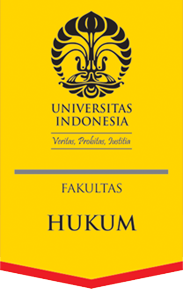DOI
10.21143/jhp.vol47.no2.1453
Abstract
Indonesia’s sea territory is particularly important in uniting the country, as the sea is a medium for interconnectivity; a medium for national integrity; a medium for resources; a medium for diplomacy; and a medium for national defense and security. This paper will focus on the sea’s significance to Indonesia’s national unity in its role as a medium for interconnecting the country’s many islands, and the implications thereof to Indonesia’s national security and defense. This paper will within this context discuss in particular the reclamation of Jakarta’s north coast. This research applies a normative empirical methodology, and intends to provide a scientific basis for the argument that as Jakarta’s coastline is crucial in terms of national defense and security matters, the coastline should therefore be managed by a state agency and remain publicly accessible.
Bahasa Abstract
Wilayah laut Indonesia sangat penting untuk menyatukan negara, hal ini mengingat laut sebagai perantara interkonektivitas, medium kesatuan nasional, medium untuk sumber daya, medium untuk diplomasi, dan medium untuk pertahanan dan keamanan nasional. Tulisan ini akan berfokus pada pentingnya laut terhadap kesatuan nasional Indonesia, sebagai medium untuk menghubungkan kepulauan diseluruh Indonesia, dan dampak laut terhadap pertahanan dan keamanan nasional. Tulisan ini dalam konteksnya akan membahas secara khusus reklamasi pantai utara Jakarta. Penelitian ini menggunakan metode normatif-empiris, dan bertujuan untuk memberikan dasar argumentasi ilmiah bahwa garis pantai Jakarta penting untuk pertahanan dan keamanan nasional, sehingga pengelolaan pesisir harus dikelola oleh lembaga negara dan dapat tetap diakses oleh publik.
References
Books Elferink, Oude. “Artificial Islands, Installations and Structures”, in Max Planck Encyclopedia of Public International Law, Oxford: Oxford University Press, 2013. Papadakis. The International Legal Regime of Artificial Islands. Leiden: Brill Archive, 1977. Rothwell, Donald R. and Tim Stephens. The International Law of the Sea. 2nd ed. Sydney: Hart Publishing, 2015. Rumley, Dennis, Sanjay Chaturvedi and Mat Taib. The Security of Sea Lanes of Communication in the Indian Ocean Region. Routledge Revivals, 2007. Rumley, Dennis. Sanjay Chaturvedi, Mat Taib. The Security of Sea Lanes of Communications in the Indian Ocean Region. New York: Routledge Revivals, 2015. Singh, Bilveer. Succession Politics in Indonesia: The 1998 Presidential Elections and the Fall of Suharto. London: Palgrave Macmillan, 1999. Articles Roach, Ashley. “China’s Shifting Sands in the Spratlys”. ASIL Insight Volume 19 Issue 15, 2015. https://www.asil.org/insights/vlume/19/issue/15/chinas-shifting-sandsspratlys. Legal Documents United Nations Convention on the Law of the Sea (1982). 1833 UNTS 3. In force 16 November 1994. States Parties 158. Indonesia. Law No.27 Year 2007 on the Management of Coastal Areas and Small Islands, State Sheet of the Republic of Indonesia, Year 2007 No.84, Additional State Sheet of the Republic of Indonesia Year 2007 No.4739. Websites Indymedia, “Stop the Northern Coastal Reclamation Project in Indonesia”, 27 September,2006, https://www.indymedia.org.uk/en/2006/09/351953.html. Jakarta Globe. “Decision to Continue North Jakarta Reclamation Project ‘Legally Baseless’: LBH”. 2016. http://jakartaglobe.beritasatu.com/news/decision-continue-n-jakartareclamation- project-legally-baseless-lbh/. Heriyanto, Devina. “Q & A: The problem with Jakarta’s land reclamation”, The Jakarta Post, 7 April 2016.http://www.thejakartapost.com/academia/2016/04/07/qa-theproblem- with-jakartas-land-reclamation.html Marine Regions. http://www.marineregions.org/documents/indonesiafinal.pdf. Continental Shelf Submission of Indonesia, Partial Submission in respect of the area of North West of Sumatra, of Government of Republic of Indonesia, 2008, http://www.un.org/depts/los/clcs_new/submissions_files/idn08/Execut ive20Summary.pdf.
Recommended Citation
Setijawati, Vera Wheni
(2017)
"RECLAIMING JAKARTA’S NORTH COAST: PERSPECTIVES FROM THE DEFENSE, SECURITY, AND CONSTITUTIONAL ASPECTS,"
Jurnal Hukum & Pembangunan: Vol. 47:
No.
2, Article 4.
DOI: 10.21143/jhp.vol47.no2.1453
Available at:
https://scholarhub.ui.ac.id/jhp/vol47/iss2/4

